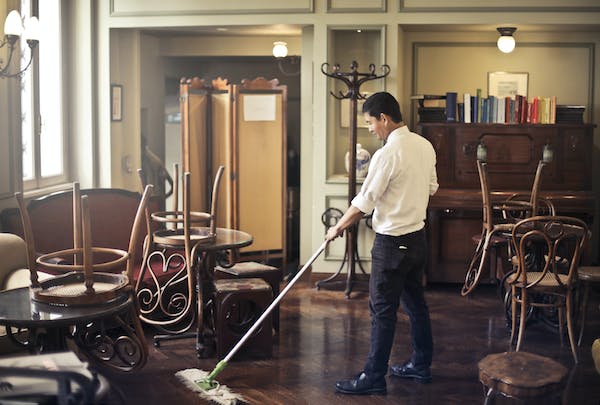Home Improvement
How to Prepare Your Home for a Deep Clean

When you think of spring cleaning, you might picture a rigorous scrubbing of every nook and cranny in your home. But even if you don’t go that far, giving your place a good deep clean can make a world of difference. Not only will it look and feel better, but it can also be healthier for you and your family.
If you’re not sure where to start, don’t worry. We’ve got you covered with this step-by-step guide to preparing your home for a deep clean. Follow these tips and you’ll be on your way to a sparkling clean house in no time!
Make a plan – decide what areas you want to focus on and make a list of all the things you need to do
After construction work, Office Cleaning Vancouver is a must! However, it can be hard to know where to start. That’s why making a plan ahead of time is so important. Decide what areas you want to focus on and make a list of all the post-construction cleaning tasks you need to do. That way, when it comes time to get the job done, you’ll have everything all laid out and ready to go! Making a post-construction cleaning plan doesn’t have to be overwhelming; just start small and break down your tasks into manageable chunks. Once you have your post-construction cleaning plan nailed down, it’ll be smooth sailing from there!
Gather your supplies – including cleaning products, gloves, and trash bags
Now that the project has begun, it’s time to make sure you have all the supplies necessary for a successful outcome. Think about what you need for cleaning, safety considerations like gloves, and bags to properly dispose of waste. Don’t forget any key elements as this will help keep your task running smoothly. With all your supplies in order, you can move on to the next step in achieving your project goals!
declutter – get rid of anything that you don’t need or use anymore
Do you have a cluttered house or workspace? Doing some serious decluttering can make your home or work life feel much more organized and productive. It’s time to get rid of anything that you don’t use or need anymore – that cookbook you haven’t opened in a year, those clothes that are never worn, the piles of papers collecting dust. Most people find it easy to let go of broken items, but getting rid of things that still serve a purpose can be harder. Remind yourself that clutter creates an unnecessary burden on your time and energy – and it could actually be costing you money too! Once you’ve finished your thorough purge, take stock of all of the extra space and freedom you’ve just gained – trust us, it will make all the difference.
deep clean – focus on one area at a time and pay attention to those hard-to-reach places
Spring is a great time for deep cleaning – and we don’t just mean dusting the surfaces and sweeping away the clutter! Making sure that each area of your home gets a proper deep clean means taking care of all of those hard-to-reach places that get easily neglected throughout the year. Clearing out cobwebs, wiping down baseboards, and washing the walls is just a few tasks that should be included in your deep clean checklist. Taking it one area at a time will make sure that no detail gets overlooked. At the end of your deep clean, you can sit back and enjoy your meticulously cleaned space!
maintain your clean home – set up a regular cleaning schedule and stick to it!
Creating and maintaining a regular cleaning schedule for your home is one of the most effective ways to keep it tidy and organized. Setting aside time each week or day for specific cleaning tasks will get you into a habit of keeping on top of clutter before it builds up. With a dependable plan in place, you’ll know exactly what needs doing, when it should be done, and you’ll eventually start to make these chores part of your regular routine. Planning out a schedule also helps to break down daunting projects like deep cleans into more manageable chunks so they seem less intimidating. There are so many benefits that come from establishing a solid cleaning routine, including less stress and a more hygienic living environment, so take the time today to put together an effective schedule that works for you!
Conclusion
A clean home is a happy home – and it can also be a selling point if you’re ever looking to put your house on the market. By following these five simple steps, you can declutter, deep clean, and maintain a tidy household with ease. And who knows – maybe you’ll even enjoy the process!
Umar Nisar was born and raised in the busy city of Abbottabad. As a journalist, Umar Nisar has contributed to many online publications including PAK Today and the Huffing Post. In regards to academics, Umar Nisar earned a degree in business from the Abbottabad UST, Havelian. Umar Nisar follows the money and covers all aspects of emerging tech here at The Hear Up.
Thanks










